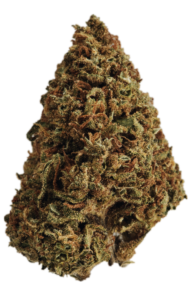Tissue Culture
Tissue Culture

Question
HOW CAN TISSUE CULTURE PROTECT YOUR IP?
Answer
Whilst there is always an element of risk with plants, because Tissue Culture is done in bio-secure process within minimal human exposure the risks of spreading PPD are much lower when compared to cuttings.
1. Any pest, pathogen and disease can wipe out entire rooms or even greenhouses so the whole crop can be lost, which is a huge cost to the business financially, your business reputation and potentially your IP, especially if mothers are affected.
2. Because the growing environment can have such a big influence on a plant’s phenotype (physical characteristics), once fully grown, a clone may not have the same characteristics as the mother plant. This can result in further phenotype variations in later generations that make it challenging to ensure the genetic integrity and ability to produce “True to Type” cannabis plants of the strain across future crops. This can affect cannabinoid yield which ultimately affects revenue. Or, if you are producing a whole plant or full spectrum extract you will need consistent genetics.
3. Thirdly, to maintain unique IP, cannabis companies can preserve strain genetics using Tissue Culture acting as a ‘tissue bank’, which is the best way to preserve genetics for decades without having to dedicate production space. This level of surety isn’t the same with seeds or even conventional clones, for which potency and yield will begin to fade over time. Tissue banking is also a great way to protect future patents. As the cannabis industry shifts its focus to phenotype-based IntellectualProperty rights for entities to claim legal possession of a particular cannabis phenotype (like Bayer or Monsanto) it will be key to maintain the original living plant sample.
Increasing demand for cannabis in Australia and around the globe is leading companies to not only rethink the way they maximise the efficiency of their cannabis operations, but also how they protect the resiliency of their cannabis genetics and reduce operational risk. Tissue culture propagation may offer the best way forward to producing large yields of healthy, true to type cannabis plants while preserving and securing possession of superior cannabis strains.
Enquire About Tissue Culture

Question
WHAT TYPES OF TISSUE CULTURE SERVICES ARE AVAILABLE?
Answer
The two major types of services
1. Supply high health clonal mothers quarterly or every 6 months.
This will provide your cultivation operations with fresh mother stock that is clean from pest and disease and vigorous in its growth compared to your existing mothers.
2. Genetic banking of unique genetics
This will provide protection from any pest and disease breakout in your facility whereby it affects your mother or cloning area and you potentially lose all your genetics.

Question
WHY IS TISSUE CULTURE A VALUABLE INVESTMENT?
Answer
Yield
Growth medium is designed and formulated by expert scientists who combine hundreds of plant nutrients and hormones to create perfect growing mediums for individual strains (The main ingredient which gives the plant all of its energy is sugar). This growth medium is able to provide the plant with all of it’s energy in a bio-secure environment. By being free form external pressures such as pests the plants are able to thrive.
Tissue Culture also exhibits strong and healthy juvenile characteristics compared to cuttings taken from mother plants, which deteriorate in quality as the mother plant ages. Strong and healthy starter material leads to higher yields.
To achieve maximum efficiency like any agricultural industry with limited space it cannot afford a loss of a whole crop/or a % of crop to pest, disease or yield. As an example, on a $1million crop, a 5% loss of your crop from either potency, growth or death on each harvest is a $100k loss. Over 4 cycles this can grow to be as much as $200k per year in revenue.
2. Efficiency
Another benefit of Tissue Culture is its ability to save very valuable space in a propagation facility while at the same time producing far superior plants to traditional Vegetative Cuttings. As Tissue Culture is undertaken at a micro level in 1 sqm you can fit thousands of plants which every 4 weeks will produce thousands and thousands of new plants. In a traditional vegetative cuttings program a mother plant cantake up 1sqm and only produce 100 cuttings every month. In addition you require expensive lights and greenhouse temperature control systems to maintain a good environment for mother plants to be grown. The higher cost of maintaining mother plants in the Cannabis industry brings the cost of Tissue Culture down compared to Vegetative cuttings.
Secondly, if you are a a greenhouse grower it’s much more efficient to use every square metre and every staff member you have for cultivating flower, for maximum yield. Purchasing in your Tissue Culture also means you don’t have to worry about managing enough cuttings for every growth cycle that are healthy to fill each room at the right timeallowing a cultivator to focus on cultivating rather than breeding new genetics, managing cutting programs.
3. Reduced Risks
Whilst there is always an element of risk with plants because Tissue Culture is done in bio-secure process within minimal human exposure the risks of spreading PPD are much lower when compared to cuttings,. Any PPD can wipe out entire rooms or even greenhouses so the whole crop can be lost, which is a huge cost to the business both in financial and reputational terms .
Secondly, because the growing environment can have such a big influence on a plant’s phenotype (physical characteristics), once fully grown, a clone may not have the same characteristics as the mother plant. This can result in further phenotype variations in later generations that make it challenging to ensure the genetic integrity and ability to produce “True to Type” cannabis plants of the strain across future crops. This can affect cannabinoid yield which ultimately affects revenue.
Thirdly, to maintain unique IP, cannabis companies can preserve strain genetics using Tissue Culture acting as a ‘tissue bank’, which is the best way to preserve genetics for decades without having to dedicate production space. This level of surety isn’t the same with seeds or even conventional clones, for which potency and yield will begin to fade over time. Tissue banking is also a great way to protect future patents. As the cannabis industry shifts its focus to phenotype-based Intellectual Property rights for entities to claim legal possession of a particular cannabis phenotype (like Bayer or Monsanto) it will be key to maintain the original living plant sample.

